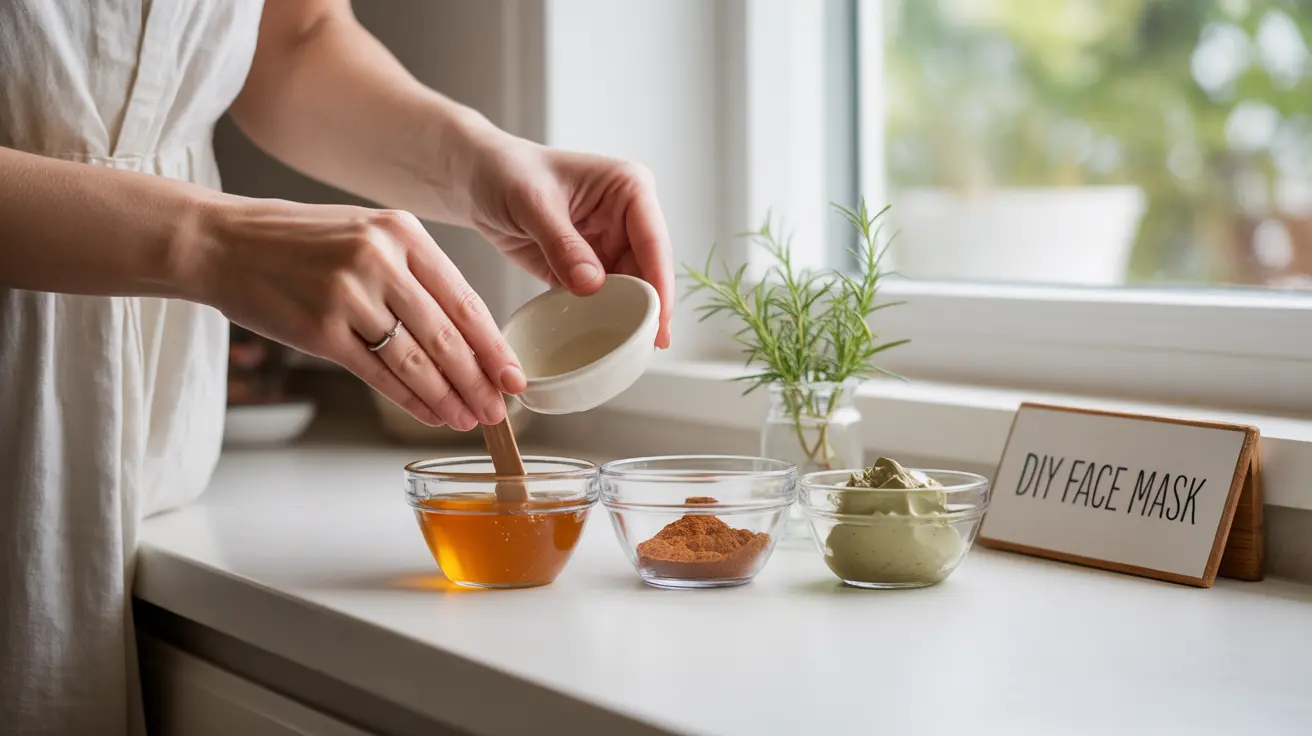Dealing with stubborn blackheads can be frustrating, but creating effective homemade blackhead removers can offer a gentle, natural alternative to commercial products. Understanding how to safely remove these common skin concerns using ingredients from your kitchen can save money while potentially being kinder to your skin.
In this comprehensive guide, we'll explore various natural methods for blackhead removal, essential safety precautions, and preventive measures to keep your skin clear and healthy.
Understanding Blackheads and Their Formation
Blackheads occur when dead skin cells and oil become trapped in your pores, oxidizing when exposed to air and turning dark. Understanding this process is crucial for both prevention and treatment using natural methods.
Safe Natural Ingredients for Blackhead Removal
Gentle Exfoliants
Several kitchen ingredients can serve as effective natural exfoliants:
- Ground oatmeal
- Rice flour
- Finely ground coffee
- Baking soda (use with caution)
Clay-Based Treatments
Natural clays can help draw out impurities from pores:
- Bentonite clay
- Kaolin clay
- French green clay
Nourishing Oils
Certain oils can help dissolve existing blackheads:
- Jojoba oil
- Grapeseed oil
- Tea tree oil (diluted)
DIY Blackhead Removal Recipes
Honey and Cinnamon Mask
Mix one tablespoon of raw honey with 1/2 teaspoon of cinnamon powder. Apply to affected areas for 10-15 minutes before gently rinsing with warm water.
Clay and Apple Cider Vinegar Strip
Combine bentonite clay with apple cider vinegar to form a paste. Apply as a strip over blackhead-prone areas, let dry completely, then gently peel off.
Prevention Tips and Best Practices
Maintaining a proper skincare routine is essential for preventing future blackheads:
- Cleanse twice daily
- Use non-comedogenic products
- Keep pillowcases clean
- Avoid touching your face frequently
- Stay hydrated
- Maintain a balanced diet
Safety Considerations
Before using any homemade blackhead remover, consider these important safety measures:
- Always patch test new ingredients
- Don't apply harsh ingredients near eyes
- Avoid overuse of any treatment
- Stop if irritation occurs
- Consider your specific skin type
Frequently Asked Questions
What are the safest homemade methods for removing blackheads without causing skin irritation?
The safest methods include gentle clay masks, honey-based treatments, and mild natural exfoliants like oatmeal. Always start with a patch test and use gentle pressure when applying or removing any treatment.
How do I prevent blackheads from forming in the first place?
Regular cleansing, proper hydration, using non-comedogenic products, and maintaining a consistent skincare routine are key to prevention. Additionally, keeping hands away from your face and regularly cleaning items that touch your skin can help prevent blackhead formation.
What are the benefits and risks of using DIY pore strips compared to commercial products?
DIY pore strips often contain fewer harsh chemicals and are more cost-effective. However, they may be less adhesive and require more careful preparation. The main benefit is knowing exactly what ingredients you're applying to your skin, while the primary risk is potential irritation if ingredients aren't properly diluted or patch tested.
Can all skin types use homemade blackhead removers, or are there specific precautions for sensitive skin?
While many natural ingredients are suitable for all skin types, those with sensitive skin should be extra cautious. Start with gentler ingredients like honey or oatmeal, avoid harsh exfoliants, and always perform a patch test. Those with skin conditions should consult a dermatologist first.
What natural ingredients can I use to create effective homemade blackhead removers?
Effective natural ingredients include clay (bentonite or kaolin), honey, green tea, apple cider vinegar, and gentle exfoliants like ground oatmeal. Essential oils like tea tree oil can also be beneficial when properly diluted.
Remember that consistency and gentleness are key when using any blackhead removal method. While homemade remedies can be effective, severe or persistent cases should be evaluated by a skincare professional.




